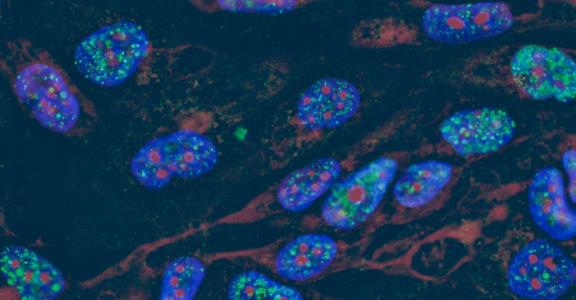Skills you will gain
- Cancer Biology Foundations: Exploration of genetic and molecular mechanisms behind cancer development.
- Tumor Progression Analysis: Examination of oncogenes, tumor suppressor genes, and gene expression changes.
- Apoptosis Disruption Insights: Investigation into how failed cell death contributes to tumor survival.
- Emerging Cancer Therapies: Insights into new treatments and prevention strategies.
- Research & Database Skills: Utilization of online tools to analyze cancer-related genes and trends.
Course Description
This course provides a comprehensive exploration of the fundamental biology of cancer, essential for developing new therapies and diagnostic tools. We will examine how cancer alters normal cell behavior, with a focus on the key genetic changes driving its progression. The course will cover the roles of oncogenes and tumor suppressor genes, the dysfunction of which can lead to uncontrolled cell growth. We will investigate how the overexpression of oncogenes and inactivation of tumor suppressor genes disrupt cellular balance. Additionally, we will delve into mechanisms that alter gene expression, such as promoter methylation, and their impact on various cancers, including breast cancer.
A critical part of the course will be studying the breakdown of apoptosis in cancer cells, a crucial factor in tumor development. As we progress, we will explore emerging cancer treatments and prevention strategies. By connecting biological insights to practical applications, students will gain a comprehensive view of current cancer research and future directions in oncology. This knowledge is fundamental for advancing cancer treatment and prevention, equipping students to contribute effectively to this vital field of study.
Topics
- Cellular and molecular biology of cancer
- The pathology and genetic basis of cancer
- The immune system and cancer immunotherapy
- The use of genetically modified T cells (CAR-T cells) to treat cancer
- The role of infectious agents and environmental carcinogens in the disease process
- Developing independent research and designing therapeutic strategies.
Professional Credit
UCSC EXTENSION Approved by the California Board of Registered Nursing, Provider Number 13114, for 20 contact hours
This course applies to these programs:




